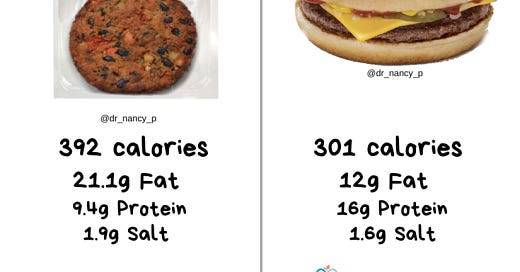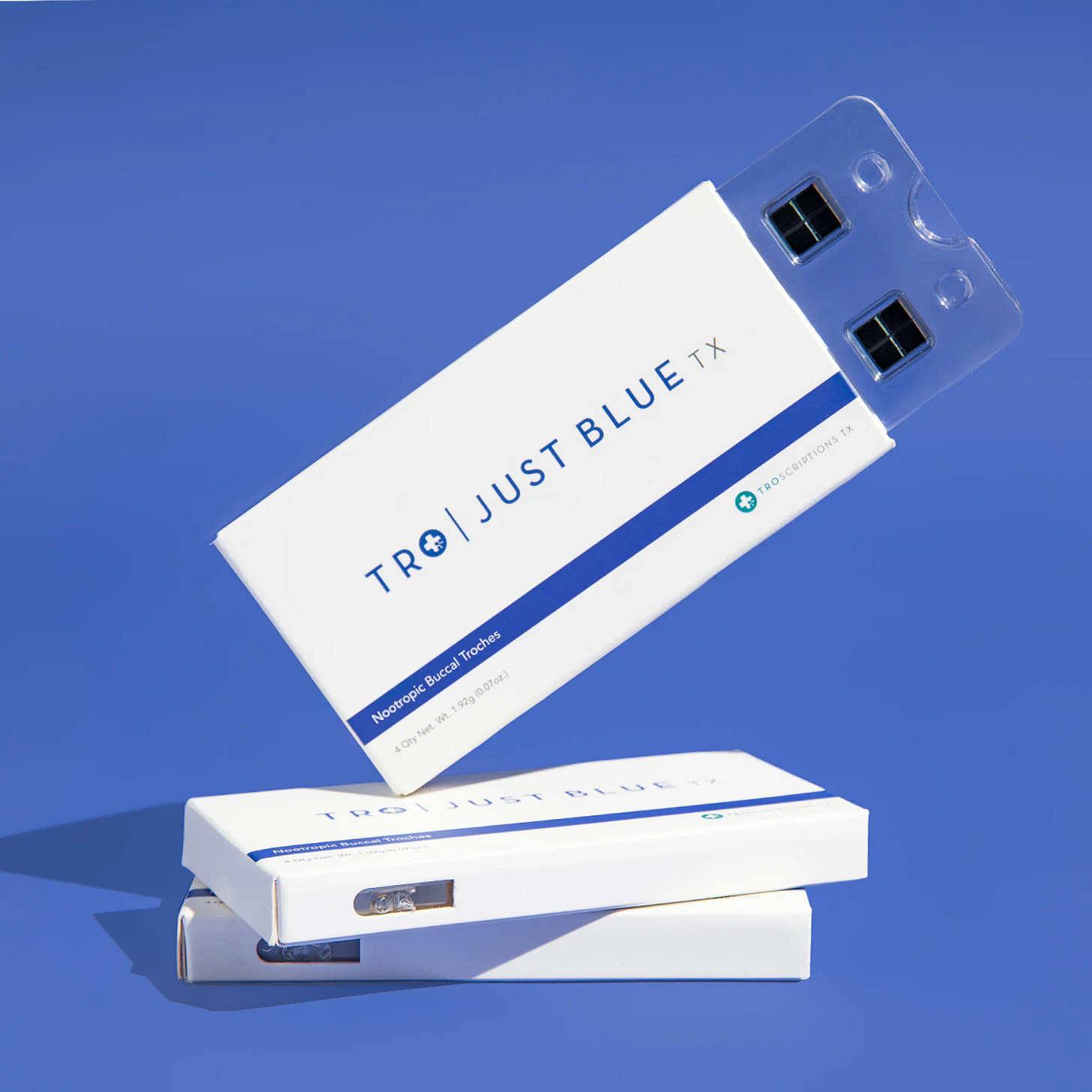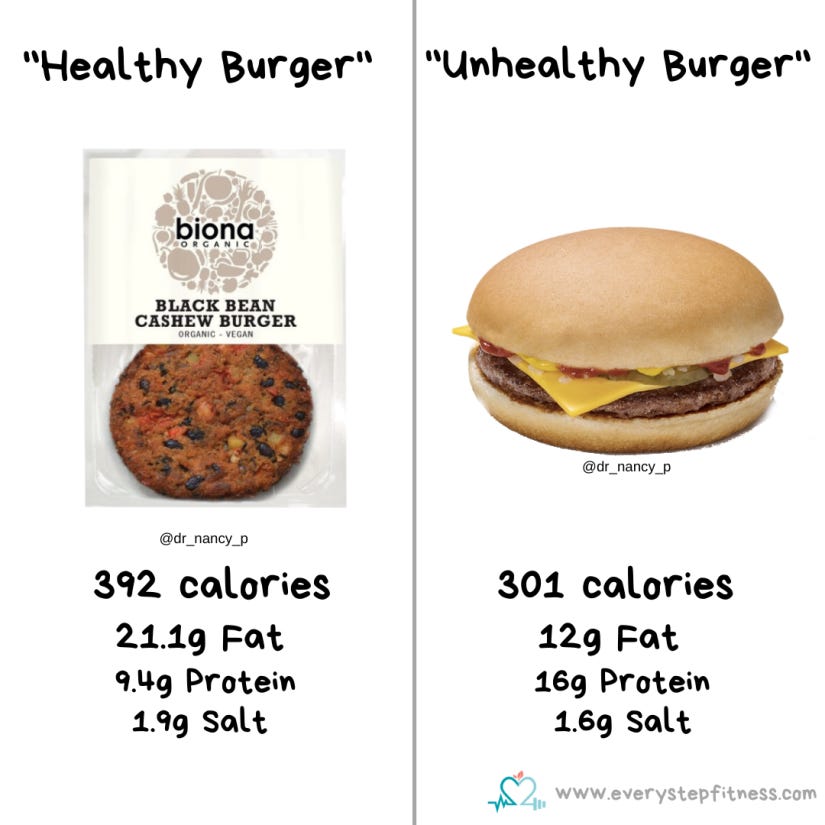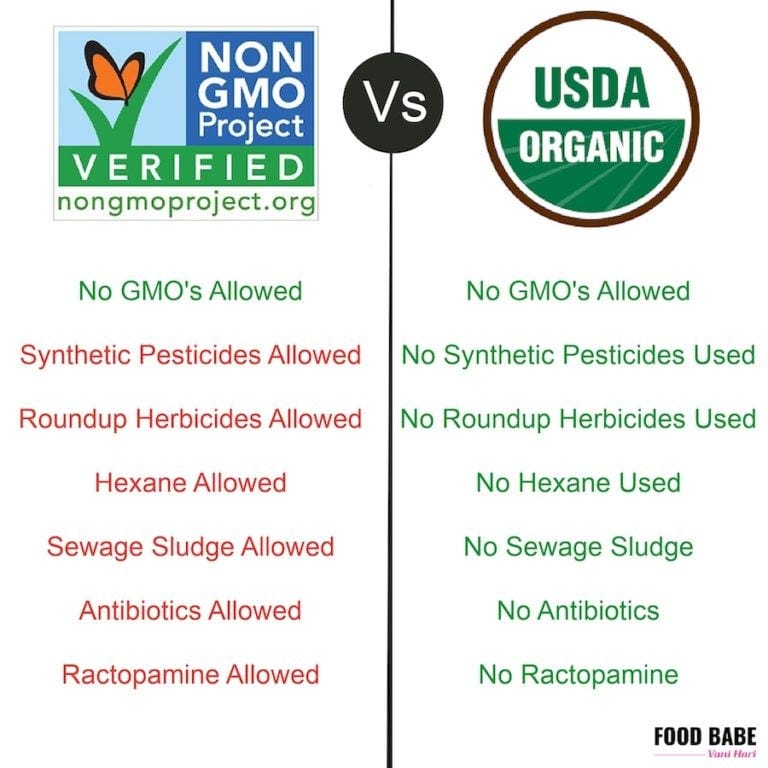Neuro Athletics is a twice-weekly newsletter designed specifically for high-performing men and women who want science-backed strategies to optimize brain health, performance, and longevity. Subscribers include executives, coaches, professional women, health-conscious mothers, and women dedicated to peak cognitive and physical performance. If you're not already subscribed, join 69,000+ people who receive actionable insights directly in their inbox each week.
Story at a Glance:
No Nutritional Advantage: Comprehensive research shows organic foods aren’t significantly richer in vitamins or minerals compared to conventional foods.
Similar Nutrient Profiles: Multiple large-scale studies confirm that organic and non-organic produce have nearly identical nutritional content.
Science vs Marketing: The perception that organic produce is nutritionally superior is primarily marketing-driven rather than scientifically validated.
Neuro Athletes,
Social media is on fire right now with the endless debate of organic vs non-organic foods. Seriously, it feels like every other reel on my Instagram feed is someone preaching about how you’re "poisoning your body" unless you exclusively buy organic. It's gotten intense—and to be honest, pretty exhausting.
Here’s the thing: not everyone can afford to shop this way, and the guilt and anxiety around food choices are doing more harm than good. I get why people are passionate—this is your health we’re talking about. But as always, I'm here to strip away the noise and bring you science-backed clarity.
So why tackle something so controversial? Because there’s real confusion. My goal has always been simple: help you make smarter, healthier decisions without stress and judgment.
Let’s cut through the marketing spin and look at what the science actually says about organic foods, safety, nutrition, and the environment.
Buckle up, this one's going to spark some debate—but you deserve the truth.
Today’s Newsletter Is Brought To You By Troscriptions
I've been personally experimenting with Troscriptions' Methylene Blue, and it has quickly become a game-changer for my cognitive performance routine, dramatically enhancing my mental clarity, decision-making capacity, and stamina in demanding professional settings.
Methylene Blue is rapidly gaining attention for its scientifically-backed ability to optimize brain function, improve cognitive performance, and protect neurons from oxidative stress—making it a must-have for anyone committed to cognitive longevity.
Ready to upgrade your cognitive health?
Use code NEURO to get 10% OFF your first order and elevate your cognitive performance today.
First, What is the "Health Halo Effect"?
You know how seeing labels like "organic," "all-natural," or "low-calorie" instantly make something feel healthier? This is called the Health Halo Effect—a psychological phenomenon where we assume one good quality makes a product universally beneficial, even when it isn’t.
Marketers know this, and they're capitalizing on it every day. But marketing doesn’t always equal scientific fact. So let’s get clear on the real data.
Myth #1: Organic Foods Are More Nutritious
Rigorous research repeatedly confirms that organic foods aren’t significantly richer in vitamins, minerals, or other essential nutrients compared to conventional produce.
Here’s the hard truth—and it's probably going to surprise some people:
Multiple comprehensive studies and systematic reviews involving thousands of food samples from farms all over the world have consistently found no meaningful nutritional differences between organic and conventionally grown fruits, vegetables, grains, or meats. That means when you choose organic, you're not automatically getting extra vitamins, minerals, antioxidants, or essential nutrients that are somehow missing from conventionally farmed foods.
To put this plainly: the vitamin C in an organic orange is no more effective or abundant than the vitamin C in a conventionally farmed orange. The potassium, fiber, magnesium, and antioxidant content in conventional produce is essentially equivalent to what's found in organic alternatives.
The narrative that organic produce is inherently superior nutritionally has become widespread, primarily due to successful marketing rather than strong scientific evidence. Organic products might have differences in farming techniques, pesticide usage, and labeling standards—but nutritional density is simply not one of them.
Multiple large-scale reviews conducted over the past two decades back this up consistently. These comprehensive studies compared nutrient profiles across dozens of food types, regions, climates, and soil types. Despite all these variables, the conclusion remains remarkably stable: organic foods are nutritionally very similar—virtually identical—to conventional foods.
Key Studies:
Dangour et al., 2009 (PMID:19640946)
Magkos et al., 2003 (PMID:12907407)
Smith-Spangler et al., 2012 (PMID:22944875)
Bottom line: Nutrition alone isn’t a strong reason to go organic.
Myth #2: Organic Foods Are Chemical-Free
What Science Says: Organic farming isn’t pesticide-free; it simply restricts the pesticides allowed to those derived from natural sources. But "natural" doesn’t automatically mean safer or better.
Some important facts:
Over 100 synthetic and non-synthetic pesticides are approved for use in organic farming.
Organic-approved natural pesticides (such as copper sulfate) often require higher amounts to be effective, potentially leaving greater residues.
The safety of any pesticide—natural or synthetic—is determined by dosage, not its origin.
Important studies on pesticide safety:
Winter & Davis, 2006 (PMID:16403682)
Baranski et al., 2014 (PMID:24968103)
Myth #3: Organic Farming is Always Better for the Environment
What Science Says: Organic agriculture is often less efficient, requiring up to 40% more land to produce the same yield as conventional farming. Increased land usage can lead to unintended environmental consequences, including deforestation and biodiversity loss.
Considerations include:
Organic farms often require higher volumes of certain pesticides due to reduced efficacy of natural options.
Certain organic-approved substances, such as copper-based fungicides, can accumulate in soils, potentially harming ecosystems over time.
Organic methods do have environmental benefits in certain contexts (like improving soil biodiversity), but they aren’t universally better for the planet.
Have you seen this?
The Real Issue with Fear-Based Marketing
Organic marketing often taps into fears and anxieties about synthetic chemicals. But the idea that synthetic automatically equals harmful, and natural equals safe, simply isn’t scientifically accurate.
Many "natural" substances—like arsenic—are highly toxic, while numerous synthetic substances have been tested extensively and proven safe within established guidelines. The issue is the dosage and exposure level—not the origin of the substance.
For instance, popular "Dirty Dozen" lists label certain conventional produce as dangerous due to pesticide residues. However, these residues are consistently found to be far below safety thresholds established by rigorous scientific testing and global regulatory bodies.
The concern isn't whether we should care about chemical safety—we absolutely should. The problem lies in oversimplifying complex data, creating unnecessary fear, and pushing expensive food choices on people who often can't afford them.
Should You Really Be Buying Organic?
If you genuinely prefer organic foods for reasons like taste, environmental ethics, or personal beliefs, that’s entirely valid. But choosing organic strictly based on health claims isn’t scientifically justified.
Instead, prioritize evidence-backed health strategies:
Focus on reducing ultra-processed foods: Whole foods, rich in nutrients, are always better.
Increase dietary fiber: Eat more fruits, vegetables, legumes, nuts, and seeds.
Stay physically active: Regular movement significantly benefits your health.
Sleep and stress management: These strongly influence your overall health and well-being.
Making Sense of Organic vs Non-Organic
This topic is not black-and-white. Organic foods aren't inherently "bad," but the health claims widely marketed often don’t hold up under scientific scrutiny.
My advice? Make informed decisions about food based on reliable scientific evidence—not marketing hype, social media anxiety, or guilt-inducing trends. The goal here is clarity, balance, and practical, achievable health decisions.
Because when it comes to your health, you deserve truth, not hype.
What are your thoughts?
















Share this post